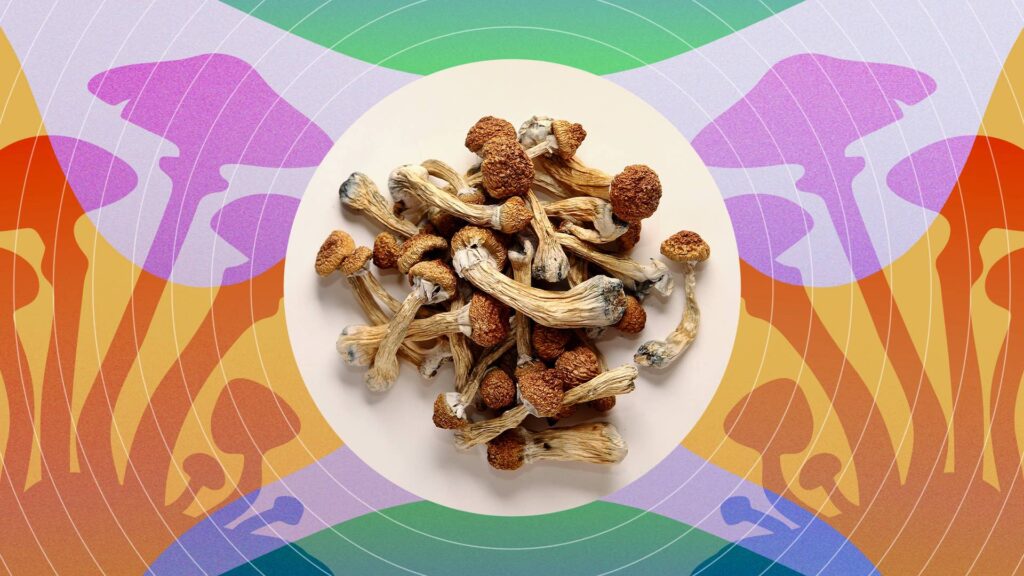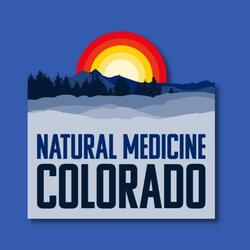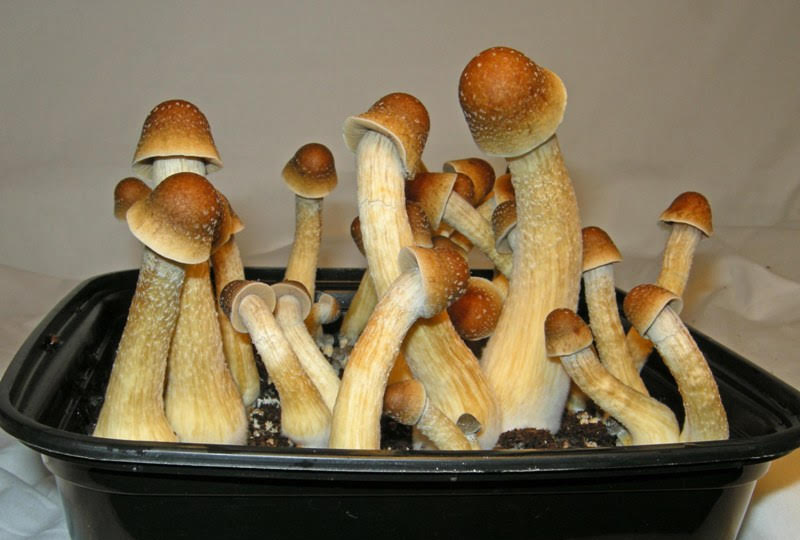
Election 2022: Guide to Legalizing and Decriminalizing Colorado Psychedelics
Initiative 58: The Naturopathy Health Law
On July 21, the Colorado Secretary of State confirmed that voters will accept or reject a multi-faceted medical legalization and decriminalization measure for psychedelics — called the Natural Medicine Health Act (NMHA) or Initiative 58 — in this year’s November 8 vote.
Read the full 18-page proposal here: Natural Medicine Health Act.
What is the current law?
In May 2019, Denver voters narrowly approved a ballot measure to effectively decriminalize the use and possession of psilocybin.
A few weeks later, Gov. Jared Polis (D) signed House Bill 19-1263 that made possession of small amounts of Schedule I or Schedule II substances a misdemeanor instead of a felony nationwide. This law came into force in March 2020.
Otherwise, entheogens — another term for psychoactive substances, typically plants and fungi — remain illegal in Colorado.
Related
How to dose psychedelic mushrooms
What Initiative 58 would do
The naturopathy health law covers many areas.
First and foremost, it would effectively decriminalize the possession, use, personal cultivation, gifting, and transportation of naturally occurring entheogens nationwide. Decriminalization would take place immediately after confirmation of the vote.
The measure would also create a framework for a medicinal psilocybin industry and begin the process of licensing “healing centers” where adults could legally consume psilocybin with the help of trained facilitators. Participants must attend three sessions: Preparation, Administration, and Integration. According to a key proponent of the measure, the treatment would likely cost around $3,000.
The Natural Medicine Health Act would also boost the process of licensing manufacturers, test labs and carriers.
The measure requires that the existing Colorado Department of Regulatory Agencies (DORA) — led by a new, 15-member Natural Medicine Advisory Board — establish rules for the program by September 30, 2024 and begin accepting licenses the same day . The measure stipulates that all decisions about the licenses must be made no later than 60 days later.
After June 1, 2026, the Advisory Council may decide to expand the scope of the Act to provide a similarly regulated market for some or all of the following entheogens: ibogaine, dimethyltryptamine (DMT), and mescaline (non-peyote-derived).

What is required to pass it?
Initiative 58 would change state law, not the state constitution, so a simple majority of votes is required for passage.
If it happens, when would psychedelics become legal for medical use? When would they be decriminalized?
Decriminalization would take effect upon confirmation of the November vote. The state would subsequently approve “healing centers” and other related licenses in late 2024.
How many mushrooms or other substances could I possess?
Initiative 58 does not contain specific language on entheogen possession limits.
When could I start growing my own?
Personal cultivation would be decriminalized immediately after the election was confirmed.
Related
Adaptogenic Mushrooms: Not quite magical, but they add some cheer to your morning coffee
When would psilocybin “healing centers” open?
The NMHA requires licensing to begin by September 2024, with a 60-day grace period to approve or deny all licenses. How much later the first centers would open is unclear.
Can I consume entheogens in public?
no The measure stipulates that adults cannot “ingest” entheogens in public or while driving.
will it happen That’s what the latest polls say
A 2021 poll in Colorado, conducted by an organization that works with the Natural Medicine Colorado campaign, found that 50% of respondents would support the legalization of psilocybin. The Natural Medicine Colorado campaign confirmed to Leafly that no internal surveys were conducted this year.
Sponsors of the legalization initiative
The Natural Medicine Colorado organization runs the Natural Medicine Health Act campaign.
The group has two leaders: Kevin Matthews and Veronica Lightning Horse Perez.
Matthews is the former campaign manager for Decriminalize Denver, which led the successful 2019 campaign to effectively decriminalize psilocybin use and possession in the city.
Perez is a Neuro Linguistic Programming (NLP) practitioner and therapist.
The Natural Medicine Colorado campaign has also received significant support from New Approach PAC. The Washington, DC group has already donated over $2.7 million to the campaign.
David Bronner, CEO of Dr. Bronner’s Soap Company, has also supported the initiative. Financial reports from the campaign show that neither he nor the company Dr. Bronners donated to Natural Medicine Colorado.

Opponents of the legalization initiative
Decriminalize Nature Colorado — a separate organization of pro-decriminalization advocates — has proven to be one of Initiative 58’s most staunch opponents.
The group lobbied a competing measure this year, Initiative 61, which failed to garner enough signatures for the 2022 vote. This measure was simply aimed at decriminalizing entheogens and not providing a framework for full medical legalization.
Would psilocybin “healing centers” be licensed?
Yes. Initiative 58 requires healing centers — and the facilitators who work there — to be licensed by a 15-member natural medicine advisory board that operates within the Colorado Department of Regulatory Agencies (DORA).
Any equity or small business licenses?
The measure prevents regulators from “[imposing] undue financial or logistical barriers” that would make it difficult for “low-income people” to become facilitators of psilocybin therapy sessions. It does not include additional language regarding equity or small business licenses for healing centers, manufacturers, or carriers.
How many healing centers or other licenses would be allowed?
The measure does not contain wording limiting to a specific type of license, but does require that an individual cannot have a financial interest in more than five healing centers.
Could local cities or counties ban healing centers?
The measure stipulates that a locality “may not prohibit or prohibit the establishment or operation of healing centers”. However, communities can zone healing centers and limit their hours of operation “reasonably”.

Would entheogens be taxed?
The measure does not contain any specific language in relation to taxation.
What about the cancellation process?
The Natural Medicine Health Act provides that individuals who have served sentences for offenses legalized by the Act may apply to have their records sealed. In Colorado, erasure is typically applied only to juvenile records.
5 things you should know about Colorado’s Natural Medicine Health Act
- The NMHA is quickly decriminalizing entheogens once Colorado officials confirm a positive vote for the measure.
- Legalization would come in two stages: first with psilocybin, then — with the approval of a yet-to-be-established advisory board — a handful of other entheogens in 2026.
- The measure doesn’t allow a county or municipality to opt out of sales, but allows them to zone “healing centers” and limit hours of operation.
- It calls for the records of previous offenders to be sealed but not erased.
- The treatment would likely cost around $3,000, although the measure urges the state to “incentivize” treatment at reduced prices for “low-income” individuals.
Quotations from supporters
- “I see what the NMHA is doing as a seamless policy: making natural medicines — psychedelic plant and fungal medicines containing psilocybin, DMT, ibogaine, or mescaline (other than peyote) — available to all adult Coloradans in two powerful healing modalities: via a regulated access model in the therapeutic context; and the self-regulatory community healing model in a decriminalized context.” — David Bronner, CEO of Dr. Bronner’s Soap Company, in a blog post
- “I have to get a call every week from people saying, ‘How do we make money from this? How do we do it?’ I say we don’t. It’s not like you can walk down the street and see a psilocybin store on the corner.” — Rick Ridder, Campaign Advisor and Partner of RBI Strategies & Researchto Leafly
Quotations from opponents
- “We are not ready. We’re in a hurry. It will be inaccessible and expensive.” — Melanie Rose Rodgers, co-promoter of Initiative 61, to Leafly
- “Personally, I disagree with I-58 and the strong out-of-state influence running Colorado. What happened to cannabis is happening to mushrooms. People from marginalized communities, people of color, are left out – again. With all the inequality and dismantling of freedoms that exist today, let’s not create new industries that feed and serve the rich and rich while opening the floodgates to anyone who is able to license Healing Center” in Colorado. I oppose the corporate takeover of sacred earth drugs and psychedelics written in I-58. While Natural Medicine Colorado sounds amazing, please be sophisticated and read their 18-page initiative and ask about funding,” Melanie Rose Rodgers, Initiative 61 co-promoter Let’s talk about hemp.
Max Savage Levenson
Max Savage Levenson probably has the lowest cannabis tolerance of any author on the cannabis beat. He also writes about music for Pitchfork, Bandcamp and other bespectacled people. He is the co-host of the Hash podcast. His dream interview is Tyler the Creator.
Check out Max Savage Levenson’s articles
By submitting this form, you are subscribing to Leafly news and promotional emails and agreeing to Leafly’s Terms of Service and Privacy Policy. You can unsubscribe from Leafly email communications at any time.

Post a comment: